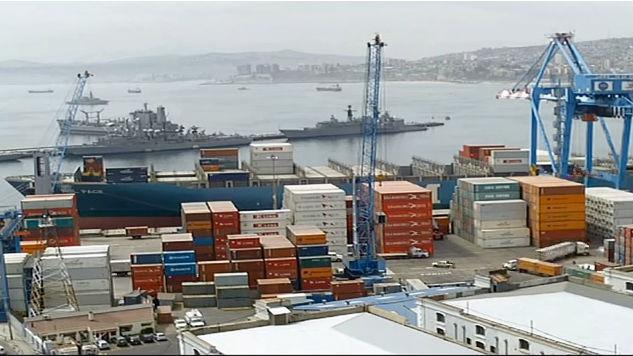Chilean Strike Hits Imports and Exports

A customs strike in Chile that began last week has started to affect exports and imports, particularly in the perishable goods markets.
The strike by customs officials, who say they want the government to approximately double their workforce, began on May 20, and the union says it will continue indefinitely until an agreement is reached.
It rejected a government proposal for a smaller increase in the workforce at the weekend.
"We have had dialogue but it has been tense ... what we want is a signal that this will be resolved in the short term but that hasn't arrived," Jorge Thibaut, secretary general of the national association of customs workers (ANFACH) said to journalists on Wednesday.
Ports in particular have been affected by the strike. Last Friday there were reports of up to 900 trucks with problems accessing Valparaiso port facilities and wait times for truck drivers were estimated at over 30 hours.
The president of the Fruit Exporters Association of Chile (Asoex) Ronald Bown Fernandez expressed his concern over the situation by urging the government and custom officials to find a quick solution to conflict. According to Asoex, Chile exported over two million tons of fresh fruit last season through the Port of Valparaiso and neighboring Port of San Antonio. Fernandez estimated that the financial losses due to shipping problems were around $16 million. Chilean exporters of fruit such as apples and grapes were hit in February by a port strike on the U.S. West Coast.
Additionally, the Salmon Chile Group has stated that their industry has seen over $30 million in losses as a result of the strike.
Miners said late on Tuesday that the impact to their industry to date had been minimal.
"In the northern zone there have been no great difficulties and in the central zone, the move has led to delays in loading our products, but we have been able to comply with our contracts," said a spokeswoman for Codelco, the world's No. 1 copper producer.
Codelco's main mines in central Chile are El Teniente and Andina.
Small business owners in the South American country have also complained that crucial import stocks were being held up.
